Reading this book, you get to know poetry from the inside, without the alienating or distracting effect of abstract definition. Knowledge of how poetry works is here imbibed not as a course of instruction but as a sustained pleasure. Bernard ODonoghue, University of Oxford, winner of the Whitbread Prize for Poetry Lucy Newlyn has written a masterpiece about poetic process. It is also a book of place and people, of language and sound, of form and intelligence, of story and history, and of tragedy and delight ... A future classic. David Morley, University of Warwick, winner of the Ted Hughes Award and author of The Cambridge Companion to Creative Writing Tremendously useful and enjoyable ...
Conveys a hefty bundle of knowledge and delight, a little bit at a time. Carmen Bugan, University of Michigan and Gotham Writers Workshop A wonderfully refreshing approach ... Every one of these pieces shines with vigour. Rowan Williams An ingenious, gentle, lucid and brilliant book that both describes and performs ... by turns poignant, funny and haunting. Nicholas Royle, University of Sussex, author of An Introduction to Literature, Criticism and Theory I read this book with great and deepening pleasure ...
Its a good book to dwell in. Im impressed by Newlyns sustained inventiveness and play. Kenneth Gross, University of Rochester All would benefit from this book, not just because of what it has to teach, but for its subtleties ... Innovative and lively. Duncan Wu, Georgetown University A deeply educative book about a wide and impressive range of poetic techniques, figures and forms ... One virtue of the books originality is that it encourages its readers to think of, and experience, form and technique as ways of imagining the world and not as skills to be learnt in the abstract.
Jon Cook, University of East Anglia  Copyright 2021 Lucy Newlyn All rights reserved. This book may not be reproduced in whole or in part, in any form (beyond that copying permitted by Sections 107 and 108 of the U.S. Copyright Law and except by reviewers for the public press) without written permission from the publishers. For information about this and other Yale University Press publications, please contact: U.S. Office: Europe Office: Set in Minion Pro by IDSUK (DataConnection) Ltd Printed in Great Britain by TJ Books, Padstow, Cornwall Library of Congress Control Number: 2020944662 ISBN 978-0-300-25191-3 A catalogue record for this book is available from the British Library. 10 9 8 7 6 5 4 3 2 1 Contents Acknowledgements This book could not have been written without the unflagging encouragement and support of Sandie Byrne.
Copyright 2021 Lucy Newlyn All rights reserved. This book may not be reproduced in whole or in part, in any form (beyond that copying permitted by Sections 107 and 108 of the U.S. Copyright Law and except by reviewers for the public press) without written permission from the publishers. For information about this and other Yale University Press publications, please contact: U.S. Office: Europe Office: Set in Minion Pro by IDSUK (DataConnection) Ltd Printed in Great Britain by TJ Books, Padstow, Cornwall Library of Congress Control Number: 2020944662 ISBN 978-0-300-25191-3 A catalogue record for this book is available from the British Library. 10 9 8 7 6 5 4 3 2 1 Contents Acknowledgements This book could not have been written without the unflagging encouragement and support of Sandie Byrne.
I owe an ongoing debt of gratitude to fellow members of the Hall Writers Forum who have given me feedback on many individual poems. In addition, I am extremely grateful to Carol Atherton, Jared Campbell, Jude Cowan Montague and Mike Spilberg for comments on the whole collection in its early stages. For their warm support when I was seeking publication I would like to thank Carol Atherton, Sandie Byrne, Carmen Bugan, Jon Cook, Kevin Crossley-Holland, Jonty Driver, Penny Fielding, Jane Griffiths, Kenneth Gross, David Morley, Tom Moyser, Bernard ODonoghue, Seamus Perry, Nicholas Royle, Rowan Williams and Duncan Wu. Many thanks to Julian Loose, my editor at Yale University Press, for believing in this book and giving me expert guidance. Lucy Newlyn
Cornwall, 2019 Introduction To read and write poetry well, you must undergo a practical training in the delights and rigours of poetic craft. For instance, you cannot properly appreciate the workings of a sonnet, how it achieves its emotional, semantic and aural effects, unless you understand how each of its individual components contributes to the whole.
The best way of learning these things is to practise writing a sonnet, or (failing that) to imagine in detail the process of writing one. The Craft of Poetry sets out to build a bridge between academic and practical methods of instruction, using my own verse (freshly written for the purpose) to introduce and exemplify key poetic figures, techniques, forms and concepts. The book is simultaneously a collection of poems about a remembered place and a handbook guiding the reader in the art of writing/reading poetry. My aim has been to bypass the difficulties that readers often experience with technical terminology, which can seem dry and unappealing. I have avoided glosses and notes throughout, allowing the poems to speak for themselves. Readers may of course choose to consult online definitions of terms used in the poems titles, supplementing these by further study in the many excellent textbooks and prose guides there are available.
The poems in The Craft of Poetry are set in Appersett, a small village in Wensleydale, North Yorkshire, where I spent much of my childhood. They depict its sheep-farming community and evoke in detail the valley of the Widdale, a winding stream in which I used to paddle, wade and swim (sometimes alone, sometimes with sisters or friends). The collection is unified by a conceit: that of crossing from one side of the beck (stream) to the other and bringing things or memories home. This is analogous to the poetic process of seeing the familiar world in new ways by using metaphor, symbol, allegory, allusion, etc. Each poem exemplifies an aspect of poetic craft; but read interconnectedly the poems describe a whole community and its way of life, revisiting places and people from various points of view. For ease of reference, the book is divided into five parts: Foundations, Figures, Techniques, Forms and Concepts.
The arrangement of poems allows the reader to begin with basic building blocks, progressing to more complex matters. In alliteration precedes chiasmic rhyme. Like a stream, the book meanders and has many eddies. After a first sequential reading, crossing between parts is to be encouraged. Comparisons of poems using varied techniques and forms will reveal different ways of seeing (and transforming) the same objects. I have studied, taught and written about poetry as an academic all my adult life, but I did not learn how to write poetry myself until I was in my forties.
Since then I have published four collections, become an experienced teacher of Creative Writing, and run an online forum in which I have given feedback on fellow writers work. My understanding of prosody and rhyme has come about partly through long familiarity with traditional poetic forms, partly through the daily discipline of using these in my own verse. There is no better teacher than experience; but such skill as I now have would have arrived much earlier had I undergone a practical apprenticeship in my teens. This book is the fruit of thinking about the craft from many angles, and it is the kind of book I feel I could have learned from as a teenager, when my experiments in writing were undisciplined and clumsy. I have addressed the poems to an apprentice poet whom I think of as my former self, or my daughter aged about eighteen, or my numerous students over the years. The book is intended, however, for readers of all ages and abilities.
Always, at the heart of this collection, is the sound, movement and life of the beck, which embodies the spirit of a beautiful and magical place. The poems can be read as explorations of nature; they also celebrate pastoral traditions and meditate on the way poetry is fostered by rural life. Readers who are unused (or resistant) to pastoral traditions might be encouraged to think about how the poetic methods illustrated here translate into other settings. I hope that the book will be useful to lovers of poetry as well as to practitioners, and that the poems will also stand on their own, to be enjoyed as discrete artefacts, accessible to readers of all backgrounds in the English-speaking world. I Foundations Crossing the beck What if you liked the nettles round that milk-stand more than the burnished crowns of distant trees, or felt more at home walking the fells than sitting by the fireside? What if you couldnt quite make up your mind between paths on either side of the bridge? Would you keep crossing back and forth, to check that nothing had changed in the meantime or would you station yourself somewhere in the middle, a lover of suspended choice, looking both ways and relishing the sound of water? Its peaceful here. You can listen to sheep bleating in the meadows.
Next page
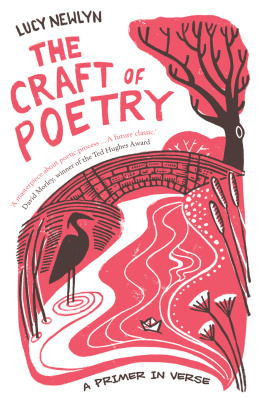
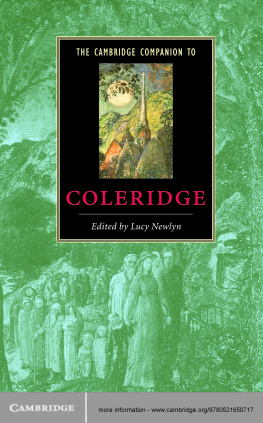
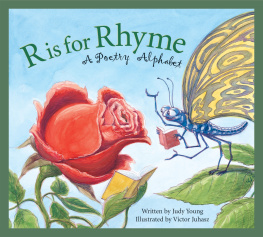
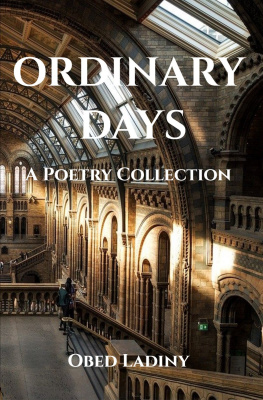
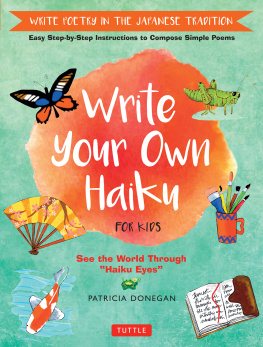
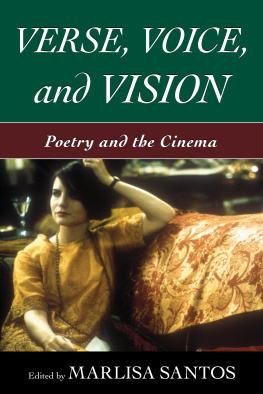
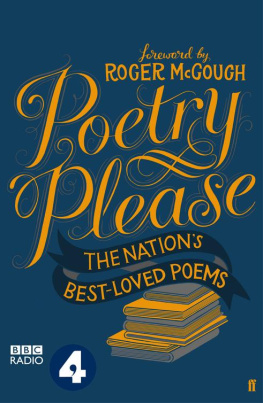


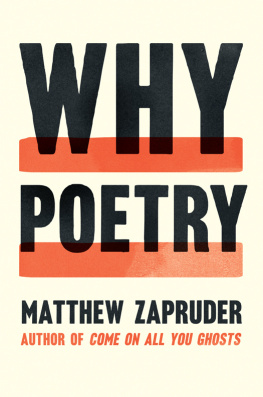
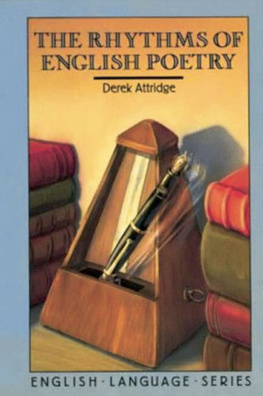
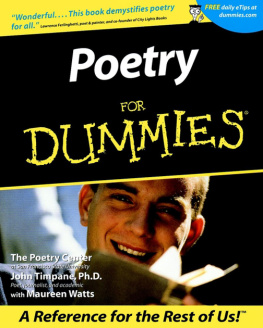
 Copyright 2021 Lucy Newlyn All rights reserved. This book may not be reproduced in whole or in part, in any form (beyond that copying permitted by Sections 107 and 108 of the U.S. Copyright Law and except by reviewers for the public press) without written permission from the publishers. For information about this and other Yale University Press publications, please contact: U.S. Office: Europe Office: Set in Minion Pro by IDSUK (DataConnection) Ltd Printed in Great Britain by TJ Books, Padstow, Cornwall Library of Congress Control Number: 2020944662 ISBN 978-0-300-25191-3 A catalogue record for this book is available from the British Library. 10 9 8 7 6 5 4 3 2 1 Contents Acknowledgements This book could not have been written without the unflagging encouragement and support of Sandie Byrne.
Copyright 2021 Lucy Newlyn All rights reserved. This book may not be reproduced in whole or in part, in any form (beyond that copying permitted by Sections 107 and 108 of the U.S. Copyright Law and except by reviewers for the public press) without written permission from the publishers. For information about this and other Yale University Press publications, please contact: U.S. Office: Europe Office: Set in Minion Pro by IDSUK (DataConnection) Ltd Printed in Great Britain by TJ Books, Padstow, Cornwall Library of Congress Control Number: 2020944662 ISBN 978-0-300-25191-3 A catalogue record for this book is available from the British Library. 10 9 8 7 6 5 4 3 2 1 Contents Acknowledgements This book could not have been written without the unflagging encouragement and support of Sandie Byrne.